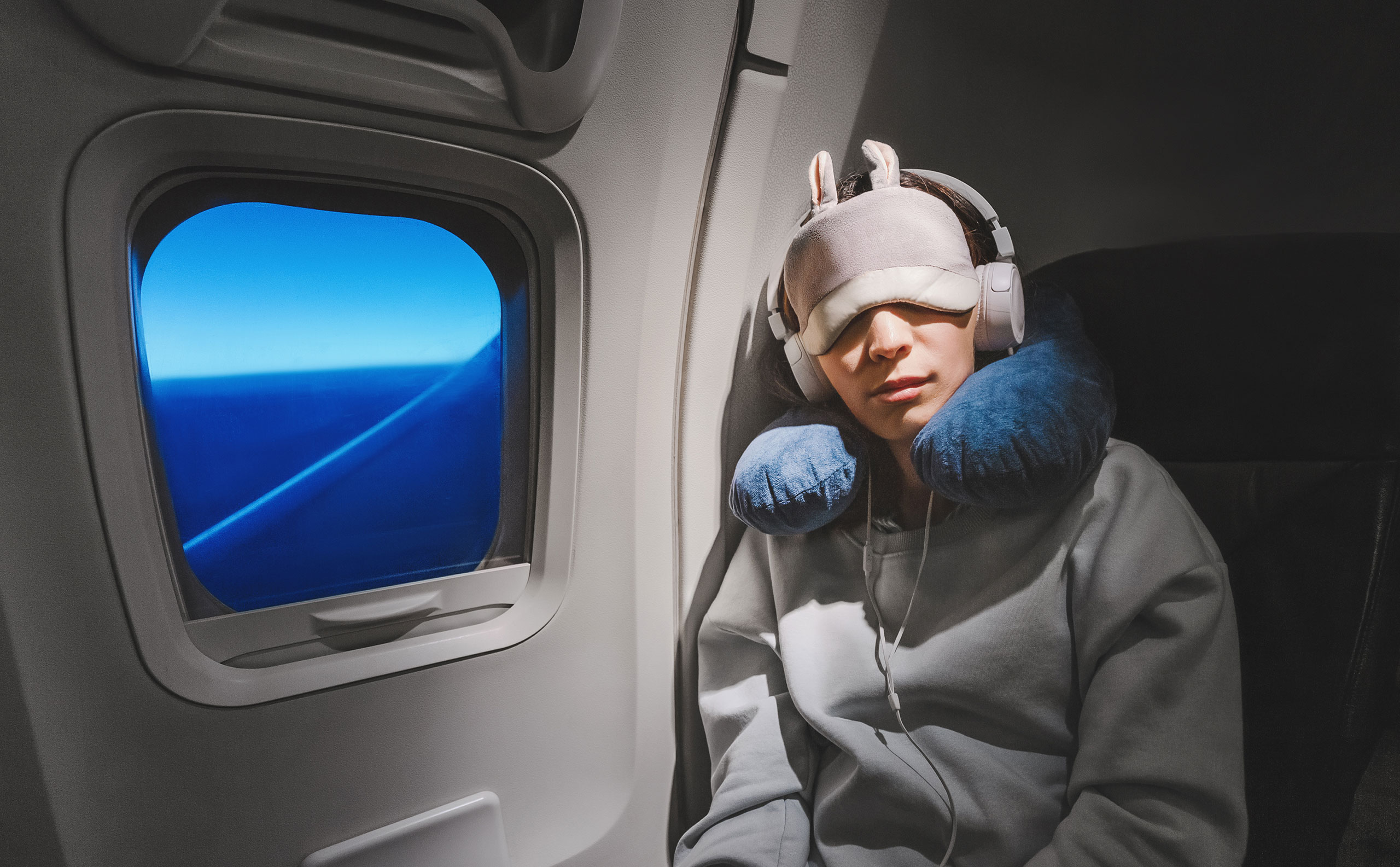Jet lag is a temporary sleep disorder that occurs in travelers who cross three time zones or more.
It results in a slow adjustment of the biological clock to the time of destination. Consequently, daily rhythms and internal sleep and wake times are out of sync with the new environment.
Melatonin secretion by the pineal gland is responsible for establishing the sleep-wake cycle. Its synthesis and release are stimulated by darkness and suppressed by light.
Travelers traveling east have difficulty falling asleep at the right time at their destination and difficulty getting up in the morning.
Travelers traveling west fall asleep very early and wake up very early.
Crossing multiple time zones or traveling east generally increases the time required for adaptation.
The older you are, the slower the recovery.
People who suffer from jet lag may experience:
- Poor sleep, delayed bedtime (flying east), waking up too early (after flying west), split sleep
- Poor physical and mental performance
- Fatigue, headache, irritability, stress, poor concentration, depression
- Gastrointestinal alterations
Prevention
- Exercise
- Eat healthy
- Rest
- Begin to reset your body clock by sleeping 1-2 hours later for a few days before travel if traveling west, or 1-2 hours earlier if traveling east. It can also be effective if mealtimes are changed to match those of the travel schedule
- Seek exposure to sunlight in the late evening if traveling west, and in the morning if traveling east
During the journey
- Avoid heavy meals, alcohol, and caffeine
- Drink plenty of water, stay hydrated
- Moving on the plane to promote physical and mental integrity, as well as protection against deep venous thrombosis
- Wear comfortable shoes and clothes
- Sleep, if possible, during long trips
Upon arrival at the destination
- Avoid situations that require critical decision making, such as meetings on the first day
- Adapt to local time as soon as possible
- People with diabetes must adjust their insulin regimen
- Optimize sun exposure once you arrive at your destination
- Eat at the appropriate time for the local time, drink plenty of water, avoid excess alcohol or caffeine
- Eat a balanced diet
- Take small naps (20 to 30 min) to increase energy
Other tips for the traveler
- Diet
- Techniques for water consumption and treatment
- Protection against mosquitoes and other insects
- Repellents
- Cruise travel
At the Traveler’s Clinic of the ABC Medical Center we can give you specialized care. Contact us!

